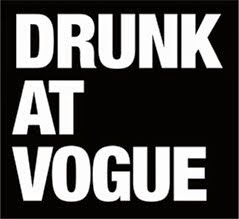Vito Russo
by Andrew Moor
Before the Stonewall Riots, Vito was a self-confessed Greenwich Village faggot, waiting tables, doing nothing much with his Literature degree, and drifting. He got caught up in the Riots at just 23 years old and they sparked in him a politicised gay consciousness of such focus and intelligence that it defined him for the rest of his life. In 1970, Vito enrolled on a Masters course in cinema at New York University, as if he knew that watching movies was somehow bound up with gay liberation, that activism and criticism went hand in hand. To me, he is the most important gay man of his generation because of his restless passion for equality and his no-bullshit, take-no-prisoners way of talking and writing about sexual politics and cinema history. He cut through the crap and became the spokesperson of a movement, right through to his death from AIDS in 1990. There was nothing quiet or quiescent about him.
He was there at the start of the ‘Gay Activists Alliance’ shortly after Stonewall. To have been at one of his ‘Firehouse Flicks’ film nights at their Community Centre in the very early 70s would have been to experience a sense of solidarity, debate and humour which the gay and lesbian community had not previously known. It is hard now for us to appreciate that safe places for non-straight communities were a new thing. And, oh, to have been there when Vito screened The Night of the Living Dead and the zombies were eating their victims, and a lesbian in the back row yelled out “Save me a Breast”….
Through the seventies he was researching cinema’s portrayals of gay men and women. He learned from the civil rights movement and from women’s lib, and was the first to diagnose, clearly and cogently, what the mass media does to people who stand outside mainstream society. It wasn't that he hated Hollywood – quite the opposite. He loved it. As he said, it’s fun to go to Disneyland, but you wouldn’t want to live there. He saw right through Hollywood’s lies, evasions, erasures, corruptions and demonisation, and he knew how damaging images could be. He wrote about film and encouraged new fresh images of gay and lesbian life so that ‘fourteen year old gay kids in Tulsa will be able to go to the movies and not have the idea that they’re the only ones in the world who are gay.’ Taking the game away from the studios and giving it to the audiences: this was his reason for writing, and it is what makes his landmark book The Celluloid Closet a masterpiece.
Vito was already an important voice when the AIDS crisis hit. In 1987 he co-founded the AIDS Coalition to Unleash Power (ACT UP), the direct action group that embraced all those affected by AIDS. I defy you to watch his ‘Why We Fight’ speech on Youtube (given at the ACT UP demonstration in Albany, New York in 1988) and be unmoved, but there’s not a trace of sentimentality in it. He doesn't play the victim: ‘If I’m dying from anything,’ he declares, I’m dying from the fact that not enough rich white heterosexual men have gotten AIDS for anyone to give a shit.’ It’s one of the great speeches of American public life. He’s our Martin Luther King.
Andrew Moor is Reader in Cinema History at Manchester Metropolitan University, where he teaches Film Studies in the English Department


No comments:
Post a Comment